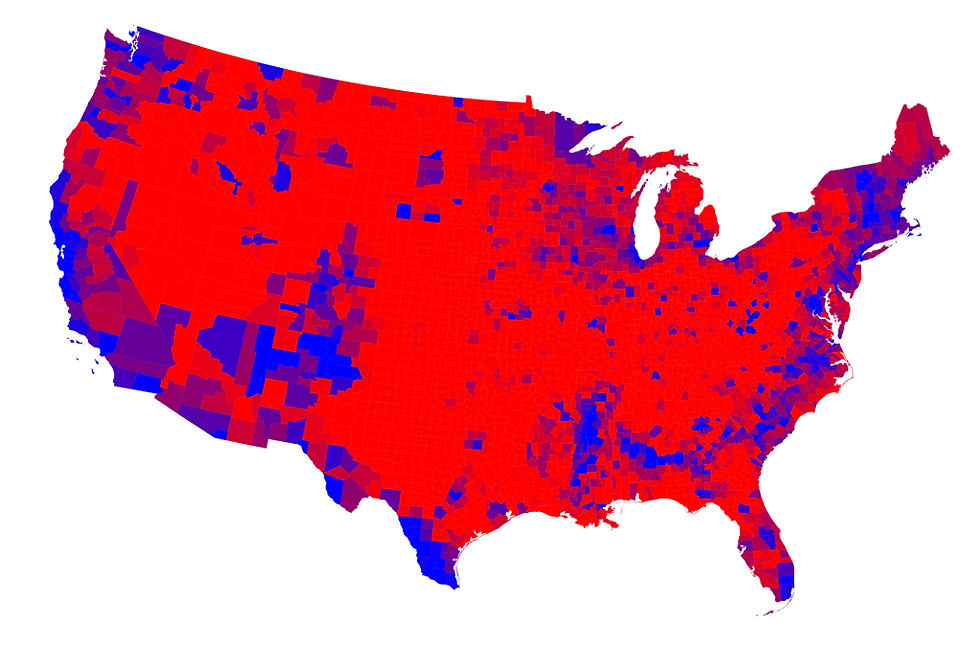Election 2016 Reactions: What Happens Next? Election Results Discussion with GPS Faculty
- JIPS

- Nov 18, 2016
- 4 min read
By Ariel Neidermeier | November 18, 2016

GPS faculty struck a reassuring tone with students about the outlook of U.S. policy under a Trump administration at a panel that took place just a week after Mr. Trump’s surprising victory in the 2016 presidential election.
Panelists included the following professors and topics: Teevrat Garg on polling issues, Jennifer Burney on environmental and energy policy, Barbara Walter on foreign policy, Stephen Haggard on security policy and Asia-Pacific relations, Gordon Hanson on immigration policy, and Zoltan Hajnal on domestic policy and national trends.
The ensuing discussion highlighted the following points:
On the inaccuracy of election polls—
Excluding national polls—which were largely correct in identifying Secretary Clinton's success in the Popular Vote—most polls were wildly inaccurate. Professor Teevrat Garg attributed the inaccuracy of the majority of polls to non-response bias and limited sample sizes.
On climate & energy policy—
During the campaign, Mr. Trump made explicit statements about eliminating the Clean Power Plan. With his victory and Republican majorities in both the House and Senate, the only thing standing in the way of Mr. Trump making good on his campaign promise is a senate filibuster. Elimination of the plan would have important implications for the Paris Agreement, in which the U.S. is held as an important model of compliance for all other parties.
Regarding energy policy, “The market forces are bigger here. The coal economy is not coming back,” said Professor Jen Burney. She highlighted the skilled technical bureaucracy in place to safeguard existing clean energy investments. However, she also noted the deeply unsettling aspect of how little science might be prioritized under the Trump administration.
On foreign policy—
Although Mr. Trump gave little information about his foreign policy plans during his campaign, there are indications that his presidency would promote a more nationalistic, America-first, power and might-intensive strategy, noted Professor Barbara Walter. For further indication of Mr. Trump’s aims, she recommended observing his appointments of key foreign policy advisors who would likely have greater power under a more inexperienced president. She also noted that the quality and experience of Mr. Trump’s chosen advisors would likely determine whether the Republican establishment would move to support the President-elect during his term. Professor Walter went on to predict that Mr. Trump would initially turn his back on the Republican foreign policy establishment (specifically all Republicans who had signed the “Never Trump” document). “I think this is going to be a more chaotic, unpredictable, less competent foreign policy….[which will lead to] infighting and leaks” Professor Walter said.
On security policy & Asia-Pacific relations—
Professor Stephen Haggard predicted a standard republican foreign policy strategy towards the military, that is, major military build-up that would entail adding 50,000 active duty Army personnel, a 50% increase in Marine Corps battalions, and nearly 100 new ships for the Navy. He also noted the boost in defense stocks since Mr. Trump’s victory since his election, highlighting the fact that investors believed this build-up would occur during Mr. Trump’s presidency. Professor Haggard further noted the death of the Trans Pacific Partnership trade deal, which he said “could leave the way open for the Chinese.” In closing, he said “I think that it’s not impossible that the U.S. could get into a significant trade issue with China.”
On immigration policy—
“It takes a significant act of Congress to dramatically change the way in which immigration policy is designed in the U.S.,” said Professor Gordon Hanson in regards to immigration policies in the Trump era. He cautioned against panicking over Mr. Trump’s previous claims to undertake widespread deportation of illegal immigrants, noting that the U.S. immigration budget—which currently allocates $18 billion a year to immigration enforcement—would have to undergo a sizable increase to have a substantial change in its policies. “We already have a wall, especially in important cities along the border” said Professor Hanson. He also noted it was unlikely Mr. Trump would rescind the DREAM act and DACA program given the opposition he would face in doing so.
On national trends & domestic policy—
According to Professor Zoltan Hajnal, the outcome of the 2016 election was largely determined by race, partisanship and the state of the economy in America. On the subject of race, he noted the high correlation of racial resentment to voting trends in the election. He also noted that, to an extent, the personalities and platforms of the candidates made little difference to the outcome of the election, but rather the state of the economy, which spurred voters to support an administration of “change”. Looking forward to the domestic policy in the Trump administration, Professor Hajnal said, “The American structure is not designed to create fast, rapid change.” He went on to remark that former Justice Antonin Scalia would likely be replaced with a similarly conservative Supreme Court justice, posing little change to the current state of the Supreme Court. Finally, he noted the only major change we might expect to see in domestic policy would occur in areas in which the president could act unilaterally—that is, through executive orders.

Ariel Neidermeier is the Editor-in-Chief of JIPS and a second year International Management track at GPS. She has a broad background in broadcast reporting, having previously earned her undergraduate degree in multimedia journalism from Emerson College and interning at NPR- and ABC News- affiliate stations around the country.







Comments